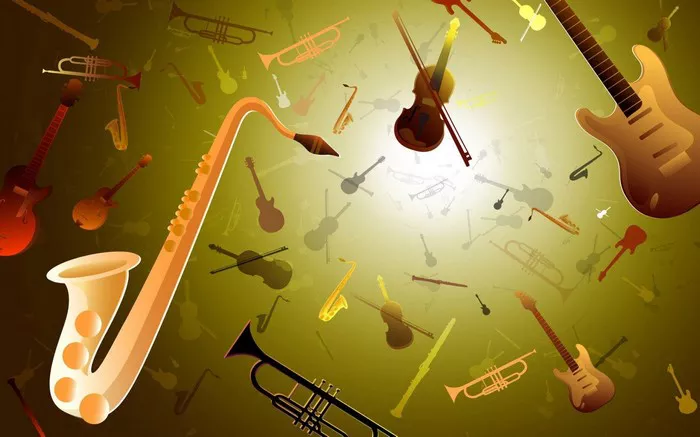Classical music, with its rich heritage and timeless compositions, is often regarded as one of the most challenging genres to perform and master. Rooted in centuries of tradition, classical music demands unparalleled technical skill, profound interpretative abilities, and an in-depth understanding of musical theory and history. In this essay, we will explore the various aspects that make classical music the hardest genre to excel in, shedding light on the technical prowess required, the emotional depth involved, and the relentless pursuit of perfection.
I. Technical Complexity:
The Art of Precision
One of the primary reasons why classical music is considered the hardest lies in its technical complexity. Classical compositions are often intricate, with demanding and elaborate note patterns, rapid passages, complex rhythms, and challenging time signatures. Virtuosic pieces by composers like Chopin, Liszt, and Rachmaninoff, to name a few, push performers to their limits, requiring utmost precision and agility. Musicians must hone their technical skills through countless hours of practice to execute these pieces flawlessly, a feat that requires immense dedication and perseverance.
Moreover, classical instruments like the piano, violin, cello, and others demand a high level of technical proficiency. Each instrument has its unique challenges, ranging from mastering bowing techniques on the violin to coordinating multiple voices on the piano. Aspiring classical musicians must invest years of rigorous training to achieve the required proficiency, emphasizing finger dexterity, breath control, and a keen sense of touch and feel.
II. Emotional Depth:
Conveying the Soul of Music
Beyond technical prowess, classical music delves into the realm of emotional depth. Composers of classical music aimed to evoke a wide array of emotions, from profound sorrow to unbridled joy, from intense rage to serene tranquility. Interpreting and conveying these emotions authentically is a monumental task for any musician.
A classical musician must possess the ability to understand and internalize the emotions woven into the composition. This requires not only technical competence but also a deep sense of empathy and introspection. To connect with the audience on a profound level, performers must infuse their own emotions and experiences into the music while remaining faithful to the composer’s intent. Striking this delicate balance between personal expression and historical context can be incredibly challenging.
III. Historical and Theoretical Understanding:
Unraveling the Composer’s Mind
Classical music is deeply rooted in history, with each composition reflecting the time, culture, and societal influences of its era. To truly comprehend and interpret a piece of classical music, musicians must undertake a thorough study of the composer’s life, historical background, and musical intentions. Understanding the harmonic progressions, contrapuntal techniques, and stylistic nuances specific to different periods is crucial in breathing life into the music.
Classical musicians also face the challenge of interpreting scores that may lack specific performance instructions. Unlike some contemporary music genres, classical compositions often leave room for interpretation, inviting musicians to add their own artistic flair. This freedom demands a deep understanding of the composer’s style and intentions, ensuring that the interpretation remains authentic and respectful of the original work.
IV. Memorization:
Mental Mastery of Lengthy Compositions
Another aspect that makes classical music exceedingly challenging is the requirement for extensive memorization. Unlike contemporary musicians who often rely on sheet music, classical performers are expected to memorize lengthy compositions, sometimes spanning over an hour of intricate music. This is particularly true for solo instrumentalists and pianists.
The ability to perform from memory is not just a display of technical prowess but also a testament to the musician’s intimate connection with the music. Memorization allows performers to focus entirely on the expressive aspects of the music, fostering a deeper connection with both the composition and the audience. However, memorizing complex pieces requires intense mental discipline, and musicians must be prepared to invest significant time and effort into this aspect of their training.
V. Collaborative Challenges:
Unity in Diversity
Classical music often involves ensemble performances, where musicians must come together as a cohesive unit to create a harmonious and unified sound. This collaborative aspect adds an additional layer of complexity to classical music, as performers must not only master their individual parts but also develop a keen sense of listening and communication with their fellow musicians.
Ensemble performances demand precise coordination, impeccable timing, and a shared vision of musical interpretation. Each member must be attuned to subtle nuances, adjusting their playing in real-time to match the dynamics of the group. Rehearsing as an ensemble can be a time-consuming process, requiring patience, compromise, and a shared commitment to excellence.
Conclusion:
In conclusion, classical music stands as a formidable challenge for musicians due to its technical complexity, emotional depth, historical and theoretical understanding, memorization demands, and collaborative challenges. The pursuit of excellence in classical music requires dedication, perseverance, and an unwavering passion for the art form. Despite these challenges, mastering classical music brings unparalleled rewards, allowing musicians to immerse themselves in a timeless tradition of artistic expression and connect with audiences across generations. It is a testament to the enduring beauty and significance of classical music in the realm of human expression.

